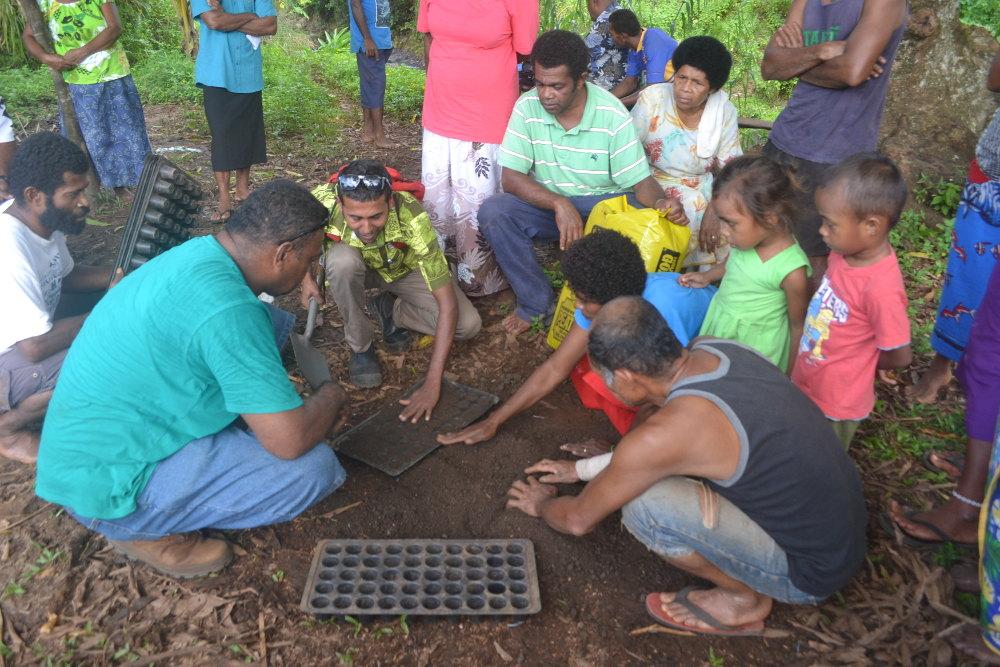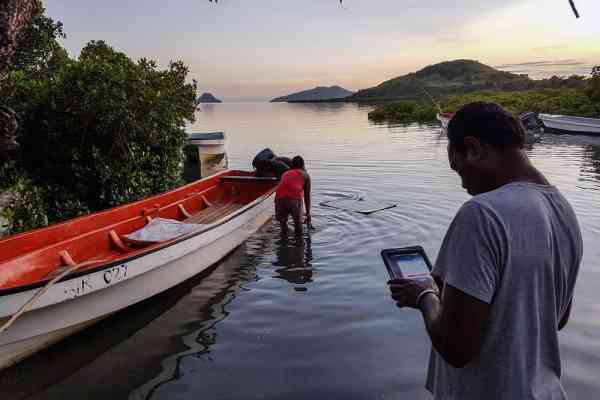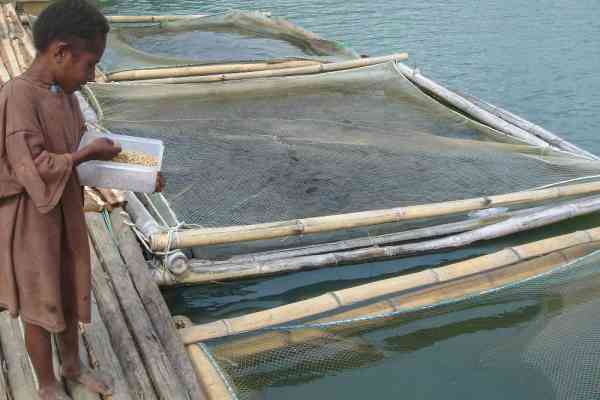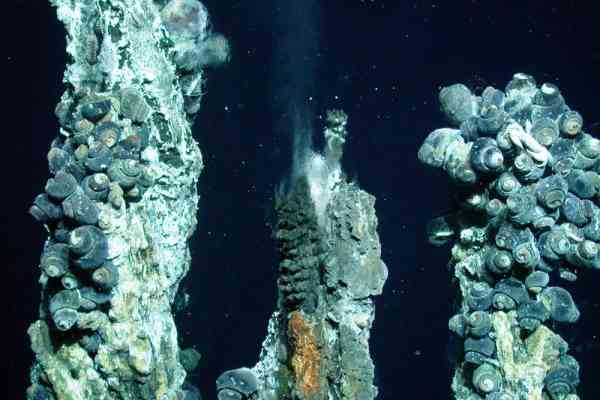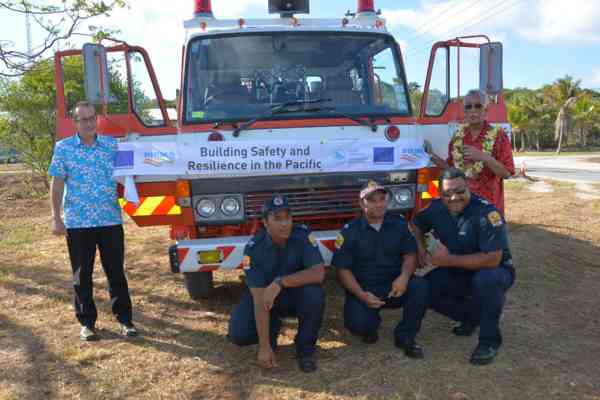Community members from Dogoru village learning seed sowing techniques.Photo: Vinesh Prasad, SPC
Planting trees to safeguard water catchments and natural forest reserves is an important initiative being undertaken by the Pacific Community (SPC) in Dogoru, Macuata, on Vanua Levu, the second largest island in Fiji.
SPC is implementing part of the the Global Environment Facility Pacific Alliance for Sustainability (GEF-PAS) project on sustainable land management in Fiji’s forest margins. It has been rolled out at three sites: Taveuni, Delaikoro and Tomanivi (Mt Victoria). The project is funded by GEF and is being led by the United Nations Food and Agriculture Organization (FAO).
Nestled in the mountains, Dogoru is the main source of fresh water for the greater Labasa area. Large numbers of rural people in these areas depend on agriculture and forestry for their livelihoods, explained SPC’s Sustainable Land Management Advisor, Maria Ratutokarua. However, current land use practices are not always productive and in some cases are harming water catchments.
'This is largely due to a lack of awareness about more appropriate technologies and practices that could increase productivity and be more sustainable in the long run’, Ms Ratutokarua said. ‘It is also due to the generally low levels of income in rural areas, which limits the ability of local people to invest in better techniques and technology’, she said.
In April 2016, 24 local farmers, including women and youth, took part in theory-based and practical training on plant propagation techniques, raising seedlings in nurseries and establishing pine and sandalwood woodlots. The three-day training conducted in Dogoru village was coordinated and run by SPC’s Land Resources Division and Fiji’s Ministry of Agriculture and Ministry of Fisheries and Forests.
The training focused on nursery management, such as soil preparation, seed sowing, watering and care of nursery plants. The farmers also learned about plant propagation techniques, such as quartering for rapid multiplication of pineapple seedlings, grafting, budding and marcotting (air layering) of fruit trees to shorten the time from germination to fruiting.
Villagers learned about protocols aimed at protecting the environment while establishing woodlots, such as planting pine trees away from streams and water catchment areas, in line with Fiji’s national code of logging practice.
Some 3000 pine trees (Pinus caribaea) and 100 sandalwood (Santalum spp) were planted as part of the training, to rehabilitate degraded land in Dogoru and provide for future community needs.
Farmer Mateo Qiolele of Dogoru supplies yaqona (kava), pineapple, cassava and taro to the Labasa market. ‘We have been farming for generations but with this training I have learnt how I can do things more efficiently and smartly to better my production and also better protect the environment’, he said. The improved practices will help Mateo provide a more consistent supply to his clients.
Highlights:
- Working with local farmers to safeguard precious water catchments by planting some 3000 pine trees and 100 sandalwood.
- SPC partnered with the Fiji Government to conduct training for 24 local farmers in plant propagation and other farming techniques.
- Farmers say they can provide a more consistent supply to clients by using the new techniques.
